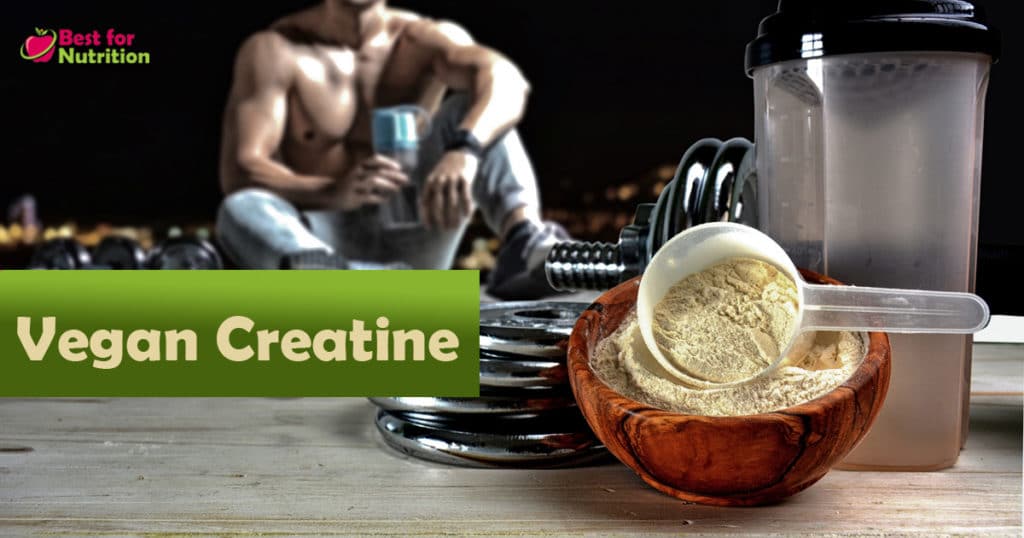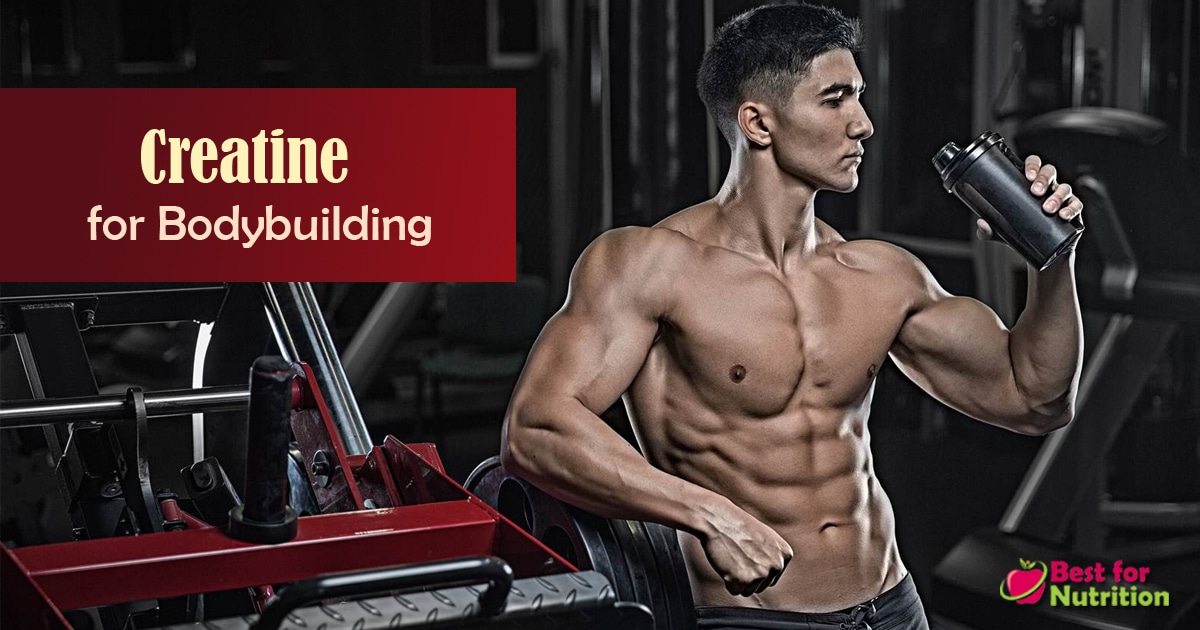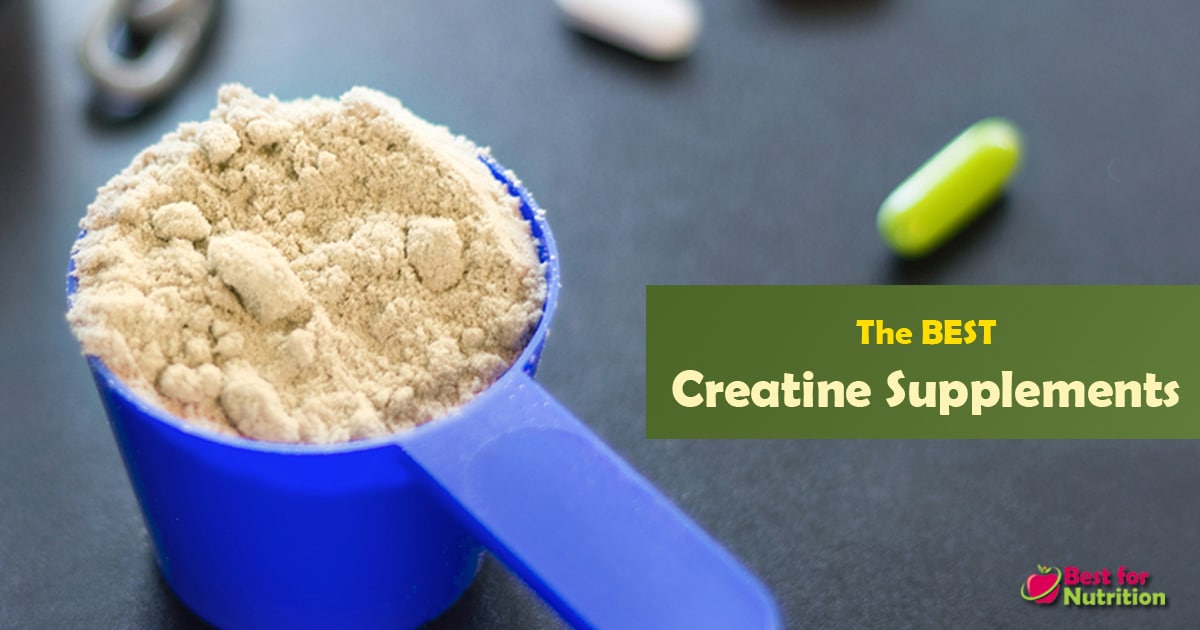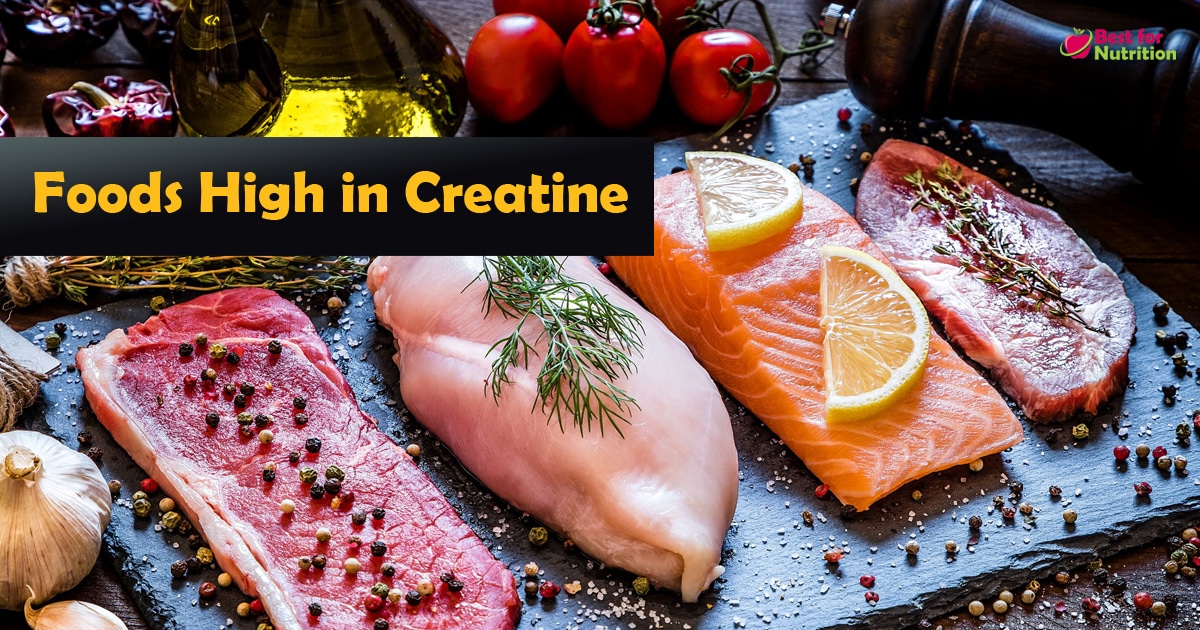Adopting plant-based diets such as vegan and vegetarian diets are among the healthiest ways of eating. These kinds of diets have been known to offer various health benefits for physical and mental well-being (1).
Yet, vegan diets can be deficient in some nutrients that are present more in animal-based diets.
Creatine is one such substance that is found lacking in vegan diets. Creatine-rich foods for vegans are extremely limited and the only best way to get adequate quantities of creatine is via the use of quality supplements.
But, what is creatine, why is a creatine supplement necessary, and is it vegan?

What is Creatine?
Creatine is a naturally occurring organic substance in the human body. It gets its name from the Greek word ‘kreas’ meaning meat or flesh. Michel Eugene Chevreul, a French chemist, discovered creatine when he extracted it from meat in 1832.
Synthesized from 3 amino acids, methionine, glycine, and arginine, creatine is produced with the help of the liver, kidney, and pancreas. While 95% of creatine is stored in muscles for use, 5% is used by the brain, liver, kidney, and testes (2).
The human body produces creatine on its own. It can also be obtained through the consumption of animal products such as milk, meat, and seafood and specific plant foods.
Since vegetarian diets limit animal foods to dairy and vegans avoid any animal product, the natural creatine from the diet is restricted.
Summary: Creatine produced naturally in the body and procured through animal-based products is stored mostly in muscles and the brain. Vegans and vegetarians get less creatine as they avoid/ restrict animal-based products.
Why Use Creatine Supplements?
Creatine is vital for human beings and the body produces enough quantities to support daily activities.
So, then, when do we need creatine supplements?
A vegan diet omits all animal-based products such as meat, eggs, fish, gelatin, and even honey. Owing to this, vegans may not get the benefit of consuming complete proteins that include several amino acids which are essential for the production of creatine.
As a result, creatine levels may be intensely low or may not be replenished completely. Using a creatine supplement can help fill such deficits easily. A supplement may be recommended in one of the following situations:
- Athletes and bodybuilders who engage in regular intensive physical workouts use creatine stores in the muscles rapidly. Replenishment of creatine and phosphocreatine levels may involve the need for supplements.
- Treatment of certain medical conditions such as muscular dystrophy, depression, Parkinson’s Disease, brain and heart ischemia, etc. may require the need for creatine supplementation.
- Dietary deficiency of creatine in vegan or vegetarian diets may necessitate the need for creatine supplements.
Summary: Creatine is vital and despite production by the body, some people require supplements. Athletes, vegans, and individuals with medical conditions, may require additional creatine through exogenous supplements.
Is Creatine Vegan?
Creatine is a substance that is naturally found in the muscles of animals. Therefore, the foods that are high in creatine are animal products such as meat and fish. makes it non-vegan.
Even though plant-based creatine resources are limited for vegans and vegetarians, there are plant sources that are rich in creatine producing amino acids. Taking them enables the body to make creatine.
But, creatine supplements are generally synthetic, which makes them vegan-friendly. Creatine monohydrate is the most common and popular form of creatine manufactured and available in many reputed brands.
Synthetic creatine is obtained through a chemical process. It involves combining two chemicals, sarcosine, and cyanamide, with catalyst compounds in a reactor to get creatine.
Summary: Creatine naturally available from animal products is non-vegan. Creatine supplements made synthetically from 2 chemicals are vegan-friendly and can enhance physical and mental health for vegans and vegetarians.
The Benefits of Creatine for Vegans
Creatine supplements are clinically proven to provide many health benefits and approved by sports organizations to be safe and effective in enhancing physical strength and performance of athletes (3).
Some of the benefits of creatine supplementation for vegans are listed below.
- Increases muscle creatine stores and exercise performance: Creatine supplementation can be beneficial in increasing muscle creatine stores in vegetarians. Increased creatine reserves prevent faster depletion of ATP levels, lowers muscle soreness, improves strength to result in better performance (4).
- Boosts cognitive abilities: Supplementation of creatine can also help boost cognitive abilities in vegans and vegetarians. One study of creatine supplementation on cognitive functions of 18 vegans and 27 vegetarians indicated that oral creatine significantly improved intelligence, reasoning capabilities, and faster brain performance (5).
- Enhances vascular reactivity: Vegans can be prone to hyperhomocysteinemia, a medical condition that can lead to arterial damage and clotting in blood vessels. Studies show that creatine supplementation may be beneficial in alleviating such conditions by reducing plasma homocysteine levels and enhancing vascular reactivity (6).
Summary: Creatine supplements can provide multiple benefits to vegans that include increasing creatine reserves for improving muscle strength, boosting cognitive ability, and preventing/ alleviating hyperhomocysteinemia.
The Bioavailability of Creatine
Bioavailability refers to the absorption rate and time that a drug or substance takes to reach the intended site for taking effect.
Bioavailability of creatine to the muscles is dependent on the time of absorption into the blood to transport it to the destined cells.
Creatine is absorbed totally by the body when mixed and taken as an aqueous solution rather than as a component of protein or beta-glucan food bar (7).
Studies show that the ingestion of creatine takes about 60 minutes to peak and take effect after oral ingestion (8).
To maintain the bioavailability, creatine supplements can be taken in clinically approved doses over a stipulated time to receive complete benefits (9).
Summary: Bioavailability of creatine depends on the time it takes to get absorbed into the body to take effect. Studies affirm the total absorption of creatine when taken as an oral solution rather than as snack bars.
The Safety and Risks of Consuming Creatine
Creatine supplements are growing in popularity owing to the various benefits they provide. Since natural dietary options for vegans are extremely limited, vegan creatine supplements are an ideal choice.
Creatine supplements tend to have little or no side-effects for most people. Several research studies have noted that long-term creatine supplementation in normal doses does not usually cause any severe side effects (10).
- Animal-sourced additives: Although synthetic creatine supplements are deemed very safe, vegans/vegetarians should make sure that there are no animal additives such as gelatin capsules used in the product to make it 100% vegetarian creatine.
- Weight gain: If creatine is being considered for supporting performance in sports, then the purpose of supplementation in that sport becomes important. If bodyweight maintenance is the main purpose, then creatine should be used in minimal doses as it is proven to add weight due to water accumulation in muscles (11).
- Gastrointestinal discomfort: Like other supplements, a 10 gm dose of creatine instead of 5 gm can result in gastrointestinal distress as observed by studies (12).
- Renal distress: Creatine may cause renal distress or failure in rare cases. Individuals with a history of renal disease should exercise caution during creatine supplementation (13).
Before starting to use creatine supplements, it is always advisable to check with a doctor for dosage or if you are taking other prescribed medications to prevent undesirable side-effects.
Summary: Creatine as a supplement is established as safe and effective with zero or minimal side-effects. Vegans can check for animal additives to ensure suitability and take a doctor’s advice for ideal dosage, safety, and efficacy.
Natural Plant Sources of Creatine
Creatine supplements can be useful in filling deficits of creatine in the human body. Apart from using supplements, vegans can increase natural creatine production in their body by including certain plant-based food in their daily diet.
Our liver can produce creatine using the amino acids glycine, arginine, and methionine. Therefore, the intake of foods that are rich in these amino acids can help us synthesize more creatine in the body (14).
Even though cranberries can provide a trace amount of creatine, the amount that has to be consumed for getting 5 gm of creatine is not practical enough.
Some of the foods that vegans can consume to obtain the required amino acids are:
- Pumpkin seeds are one of the highest vegan sources of arginine. One cup of these seeds can provide around 6.9 g of arginine (15).
- Watermelon seeds which are usually discarded contain 5.2 g of arginine and 1.8 g of glycine per cup (16).
- Sesame seeds if consumed regularly can give 4.8 gm of arginine and 1.6 g of glycine and 1.3 g of methionine per cup of 150 gm (17).
- Cooked quinoa seeds provide 0.4 g of glycine and 0.629 of arginine in one cup (18).
- Nuts – Nuts are a great source of healthy fats, proteins, vitamins, and minerals. They can also serve as great sources of amino acids. While pine nuts, almonds, walnuts, peanuts provide 3 to 4.5 g of arginine, brazil nuts offer 1+ g of methionine, blanched almonds and butternuts give around 2 g of glycine (19), (20), (21), (22), (23).
- Legumes are generally strong sources of protein and fiber. Legume varieties such as soybean, white beans, peas are all good sources of the 3 amino acids (24), (25), (26).
- Vegetables and greens such as beans, watercress, spinach, and asparagus are all sources of glycine and supply the other 2 amino acids in minimal quantities (27), (28), (29), (30).
- Fruits such as kiwi and banana are small sources of amino acids (31), (32).
- Seaweed, especially dried spirulina, serves generous portions of all 3 amino acids (33).
Summary: Amino acids arginine, glycine, and methionine can be obtained through various plant-based foods such as nuts, seeds, fruits, vegetables, legumes, and seaweed to aid natural creatine production in the body.
Frequently Asked Questions (FAQs)
Why do Vegan Athletes Have Lower Levels of Muscle Creatine?
Creatine is primarily concentrated in the muscles and to a certain extent in the brain. Though the body makes creatine from amino acids, the vegan diet is limited in terms of naturally creatine-rich foods.
Vegan athletes use more of the creatine reserves during physical workouts which depletes their muscle creatine reserves rapidly. Oral creatine supplements are the best way to replenish creatine reserves quickly and effectively which may be more beneficial to vegans.
When is the Best Time to Take Vegan Creatine Supplements?
Vegans have low levels of creatine due to diet restrictions. Oral supplements can help increase muscle creatine stores to support workout plans effectively.
While creatine supplementation taken 30 minutes before a workout can increase reserves for providing maximum energy during the workout, post-workout supplementation helps in faster recovery and replacing depleted ATP levels.
Research also indicates that creatine combined with carbohydrate intake post-workout increases glycogen stores and aids better creatine retention (34).
Is Creatine Monohydrate Vegan?
Creatine monohydrate is the best and most popular form of creatine supplements.
It is synthetically prepared through a chemical process and has no natural animal-based ingredient involved in its preparation. This makes it ideal for vegan/ vegetarian use.
Having said that, vegans must check the product label or with the manufacturer for use of animal-based additives such as gelatin to ensure purity as a vegan creatine product.
The Final Note
Vegan diets are healthy and bestow many health benefits. But the nature of the diet restricts animal products, depriving the human body of complete proteins that help supply important amino acids responsible for creatine production.
Creatine produced by the human body and obtained through the consumption of milk, meat, and seafood is stored in the muscles and brains to support daily activities.
Deficiency of creatine in vegan diets increased creatine requirement by athletes, and certain medical conditions necessitate the use of exogenous supplements.
Intake of creatine supplements can provide benefits that include increased creatine stores for sustained strength, energy, and muscle recovery, enhanced cognitive abilities, and treatment of hyperhomocysteinemia.
Creatine absorption into the body is better when taken as an oral solution and plasma levels peak about 1 hour after ingestion.
Synthetic creatine supplements are considered safe and effective with minor side-effects and vegans can benefit from using it in recommended doses to fill creatine deficits in their diet effectively.





